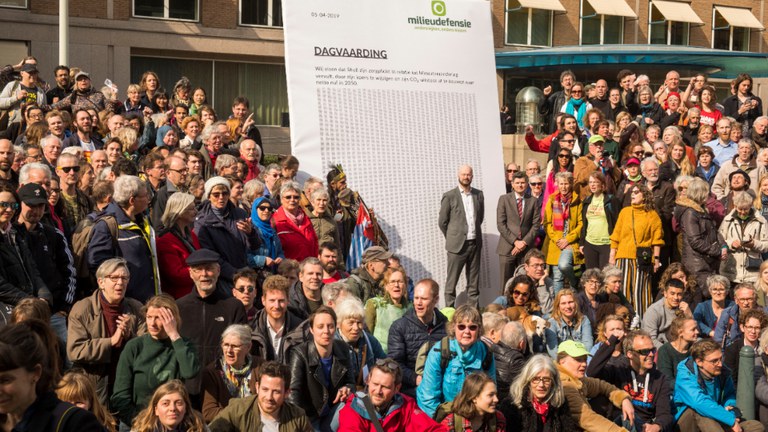
IEA scenarios may not stand the test of climate litigation: Dutch Supreme Court ruling (Shell should pay attention)
By Laurie van der Burg
As the climate crisis wreaks havoc across the globe and we enter a decade that will make or break our ability to limit warming to 1.5°C, Big Oil continues to use the International Energy Agency’s (IEA) dangerous scenarios to justify major new investments in oil and gas, including in court. But a recent Dutch Supreme Court ruling suggests that these scenarios may not stand the test of climate litigation. With climate litigation rapidly on the rise, this gives yet another reason for the world’s main energy modelling agency to fix its scenarios if it wants to stay relevant in an era of climate emergency.
The IEA’s scenarios are highly influential because governments, businesses, industry groups and investors rely on them to guide their energy decisions. But currently they give critical cover to Big Oil, Gas, and Coal to justify massive expansion at a time when the climate cannot afford any new fossil fuel production. This has driven a diverse group of investors, governments, academics, energy experts, and NGOs to demand that the IEA step up and put a truly 1.5°C-aligned scenario at the center of their annual flagship World Energy Outlook.
And pressure for reform is coming from another source: the Dutch Supreme Court. A Dutch climate case that was won in the Supreme Court at the eleventh hour of 2019 has far reaching implications not only for governments worldwide, but also for the International Energy Agency, and for Shell.
Upholding two earlier decisions in favour of Urgenda by the District Court of The Hague in 2015 and the Court of Appeal in 2018, the Supreme Court has clarified that “every state has a fundamental human rights obligation to address the threat of climate change and to address it now, not in the future,” according to Carroll Muffett at the Center for International Environmental Law. This is why the Supreme Court ordered the Dutch government to increase its emission cuts to 25% by the end of 2020.
After the historic ruling, all eyes now turn to Shell, which faces a climate lawsuit in the same jurisdiction. Inspired by Urgenda, Friends of the Earth Netherlands, on behalf of 17379 Dutch citizens and 6 other environmental NGOs, delivered a court summons to Shell HQ in April 2019.

Plaintiffs deliver court summons to Shell HQ in The Hague, Netherlands, April 2019. (PC. Michiel Wijnbergh).
Underpinning Shell’s recently submitted defence in the case? IEA scenarios. It is not new that Big Oil uses IEA projections to justify new investments in oil, gas and even coal. IEA scenarios have been used to justify the TransMountain tar sands pipeline in Canada as well as the Adani Carmichael coal mine in Australia among many other projects.
In Shell’s the 272-page reply to the legal case, Shell mentions the IEA 54 times, or roughly once every 5 pages. It says that the IEA scenarios show that “during and after the transition to a climate neutral energy system, there will be an important role for oil and gas”, and that “without continuous investments to keep up and increase the production of oil and gas and to develop new fields, the reduction in production will increase the already large gap between demand for and supply of oil and gas from existing and planned production”.
In addition, Shell argues its $20-25 billions of investments a year are small compared to the required investments in upstream oil and gas of between $427 and $684 billion between 2018 and 2040 according to IEA. (Shell also states that over the next three years it will provide financial contributions to the IEA to support its work on carbon capture, use and storage, an end of pipe technology that, despite being pushed as a holy grail solution to the climate crisis by the oil industry for years, has not materialized at scale.)
But looking at the Dutch Supreme Court’s ruling in the Urgenda case there are good reasons to believe that the IEA scenarios that Shell so excessively relies on will not stand the test of climate litigation. Here is why:
The Dutch Supreme Court decision suggests that it is unlikely that Shell’s use of IEA scenarios to justify continued investments in oil and gas will be accepted by the Dutch courts. For the IEA, next to the mounting critique on its latest WEO, this is yet another reason to #FixTheWEO in 2020.
